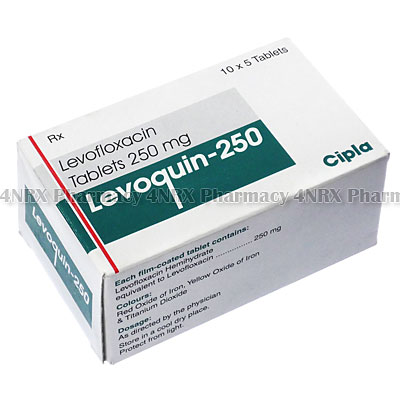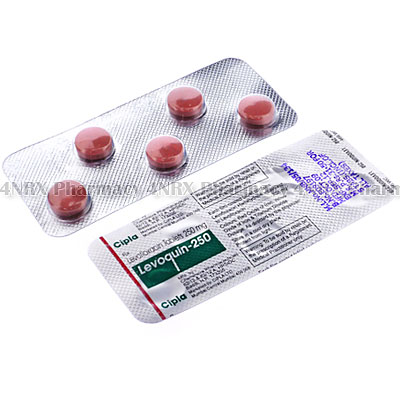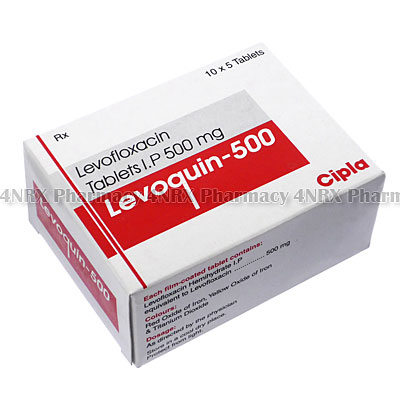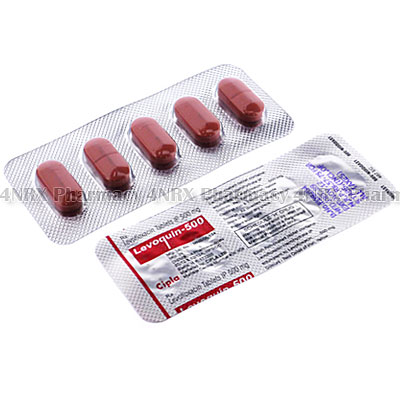 |
Home  Infection Infection  Levoquin (Levofloxacin) Levoquin (Levofloxacin) |
|
|||||||||
|
|
Levoquin (Levofloxacin)
What is Levoquin (Levofloxacin) used for? Levoquin (Levofloxacin) is an oral quinolone antibiotic prescribed to treat a wide variety of bacterial infections. The medication operates by slowing or stopping the reproduction of bacteria cells making it easier for the immune system to control or destroy the infection. This makes it useful for treating conditions such as bacterial infections of the urinary tract, sinuses, lungs, skin, or prostate gland. Your doctor may also prescribe its use for the treatment of other unlisted conditions. Please note that this medication is only meant for bacterial infections and will have no effect on those caused by a fungus or virus. How should I use Levoquin (Levofloxacin)? Take Levoquin (Levofloxacin) should always be used according to the instructions of your doctor to get the safest and most effective results from treatment. One tablet is usually taken once or twice daily for a cycle of medication lasting one or two weeks, but your individual instructions will depend on your age, weight, current health, the condition being treated, and the severity of your symptoms. These should be swallowed with a large glass of water and may be taken on an empty stomach, although a meal or snack is recommended prior to use if you experience nausea. Never split or crush the tablets before taking them to avoid unintentionally destroying or altering the effects of their contents. Do not stop taking the medication before being instructed to do so, even if your symptoms seem to have disappeared, as the infection may not be completely eliminated and may return strong and more resistant to treatment. Ask your pharmacist or doctor any questions you have about the medicine to ensure the correct administration. What are the side effects of Levoquin (Levofloxacin)? Commonly reported side effects associated Levoquin (Levofloxacin) include:
Serious side effects that may require emergency medical attention are severe headaches, dizziness, flu symptoms, intense diarrhoea that is bloody or watery, depression, hallucinations, anxiety, seizures, or intracranial pressure. Tell your doctor about any worrying symptoms you experience to make sure the correct changes are made to your dosage or application frequency to prevent further health problems from occurring. Please Note Levoquin (Levofloxacin) should not be used to treat patients who are pregnant, breastfeeding, young children, allergic to quinolone antibiotics, who have had a bad reaction to similar treatments in the past, or who have epilepsy. Also inform your doctor if you are using other corticosteroid medications or have bradycardia, diabetes, myasthenia gravis, disturbed sodium or potassium levels in the blood, heart disease, G6PD deficiency, porphyrias, a history of psychiatric illness, a recent organ transplant, decrease kidney function, or reduced liver function. These conditions may cause unexpected health problems requiring special adjustments to your regimen. Strictly use Levoquin (Levofloxacin) as prescribed and follow all instructions provided by your doctor. Safe, suitable, and optimum dosage can vary and is dependent on the patient`s health and medical history, as well as the condition you are treating. Levoquin (Levofloxacin) may not be safe or suitable for all patients. Always ensure your doctor is informed if you are pregnant or breastfeeding, using any other type of medication (including non-prescription medicine, vitamins, and supplements), as well as if you have any allergies, other illnesses, or pre-existing medication conditions. Seek immediate medical attention or proceed to your nearest accident and emergency department if you suffer a hypersensitive or allergic reaction. Symptoms usually present during a reaction of this nature include difficulty breathing or swallowing, swelling of the limbs or face, tight chest, hives, and skin rashes. 



|
||||||||||||||||||